NIL
Razorbacks, college football facing existential threat amid NIL, portal changes

FAYETTEVILLE, Ark. — It’s starting to become entertaining watching the sports media, particulary in the SEC, be on the verge of developing ulcers and heart issues over college sports.
It’s the case around Arkansas. Every day at least one person asks me about it around town. Some are on the complete verge of panic over their Razorbacks.
They gripe it costs more to go to games, but they keep paying.
The feeling among many is college athletics is at a crossroads and it is, but probably not the one most are thinking about. They are just looking at the storm clouds and thinking they need to build an ark.
ESPN analyst Paul Finebaum has raised alarms about an “existential threat” facing the game, citing the rapid changes brought by Name, Image, and Likeness (NIL) policies, the transfer portal, and playoff expansion.
As the sport evolves, Finebaum and other voices warn that the very fabric connecting fans, players, and schools is under strain.
“I think what is going on now is an existential threat to the future of thegame, Finebaum said during his weekly appearance on “McElroy and Cubelic in the Morning” on WJOX-FM 94.5 in Birmingham. “In a couple weeks, one thing we will all be saying is, ‘Just get me to that first Saturday. Get me to that last weekend in August, and all this will go away.’ But all this will not go away. It’s still there.”
While Paul is free to have his opinion, it is a little bit of a knee-jerk. Things will completely change, but that’s normal.
Just like in the real world, ultimately the market will correct itself eventually and settle out. Some fans will just complain loudly, the media will throw their hands up and create despair for others.
The smart ones will just ride it out. It’s the same way in business with people playing the stock market on a daily basis. The ones who get rich just deal with the lows and wait on the highs, making money all the way.
The introduction of NIL legislation has allowed college athletes to profit from their personal brands, a move widely seen as overdue. What started as a good idea has gotten blown out of whack because opportunistic lawyers got involved after there was a reasonable start.
The system’s lack of structure has created new challenges. Players can now transfer with little restriction, chasing better financial deals or playing opportunities. This has led to concerns about loyalty and continuity within programs.
“It’s just a bizarre system, and we don’t care that the players are making money, but ultimately, the loyalty to the school is where the factor is,” Finebaum said about the key factor in the growing disconnect between fans and the sport.
“It’s not so much the money, it’s not so much the talk of the playoffs. It’s the portal. It’s the fact that a player can leave at a moment’s notice with no commitment, no loyalty. I think it’s disconnecting fans.”
In other words, too many players aren’t really playing for the school colors, mascot or fans. That drives everybody slap crazy. It was the norm for a century and now it’s not. Panic is the result.
Georgia head coach Kirby Smart echoed these worries, emphasizing the need for fairness and sustainability.
“I just want it to be able to have a freshman come in and not make more than a senior,” Smart said on The Paul Finebaum Show on SEC Network. “We’re all in a good place with being able to compensate players. Call it pay for play, call it NIL, I don’t care what you call it. We just want it to be in a way that’s sustainable.”
Smart and others worry that without reform, the system could force schools to cut non-revenue sports, fundamentally altering college athletics.
Schools had gotten extremely comfortable dealing the revenue they could count on. The problems started when everybody wanted more money and, just like with any corporation, the guys at the top ain’t taking a pay cut.
The College Football Playoff (CFP) is also in flux. After expanding to 12 teams, discussions are ongoing about further expansion and changes to the seeding process.
The Big Ten and SEC, now the sport’s power brokers, are pushing for formats that could further concentrate influence and revenue, raising concerns about the long-term health of the sport’s competitive balance.
“We’re examining the format comprehensively, said CFP executive director Rich Clark. “Whatever decisions we make for 2025 will influence 2026 and subsequent years”.
The recent House v. NCAA settlement has also complicated matters, as schools battle with how to implement revenue sharing while maintaining broad athletic offerings.
In other words, somebody’s going to have to take a pay cut. While that should start at the top it usually starts by removing things on the bottom of the pile.
Finebaum warns that the impact of these changes may not be immediate, but the slow erosion of tradition and loyalty could eventually drive fans away.
“A year ago, I really believed that the games on Saturday would cure the ills, and they were fantastic,” he said. “We all participate in them. But there is, slowly but surely, a disconnect. It’s the older fans first.
“And I know college administrators aren’t as concerned and television executives aren’t as concerned. But ultimately it will trickle down.”
The bottom line is the fans will have to pay more for a lot less. Colleges restrict access so much these days, the amount of daily coverage has dropped.
But nobody really cares about that anymore. The TV checks get bigger every year.
Just like nearly everything else in life, just follow the money and you can find the real answer. College athletics will continue rolling along in some fashion.
In the end, the guys at the top will find ways to avoid taking a pay cut. Nobody will let it end, despite how many people complain.
The phrase too big to fail comes to mind. College athletics may have reached that point, but it probably won’t look like it did just a decade ago.
You’ll just have to deal with it.
NIL
College football program loses 22 players to transfer portal
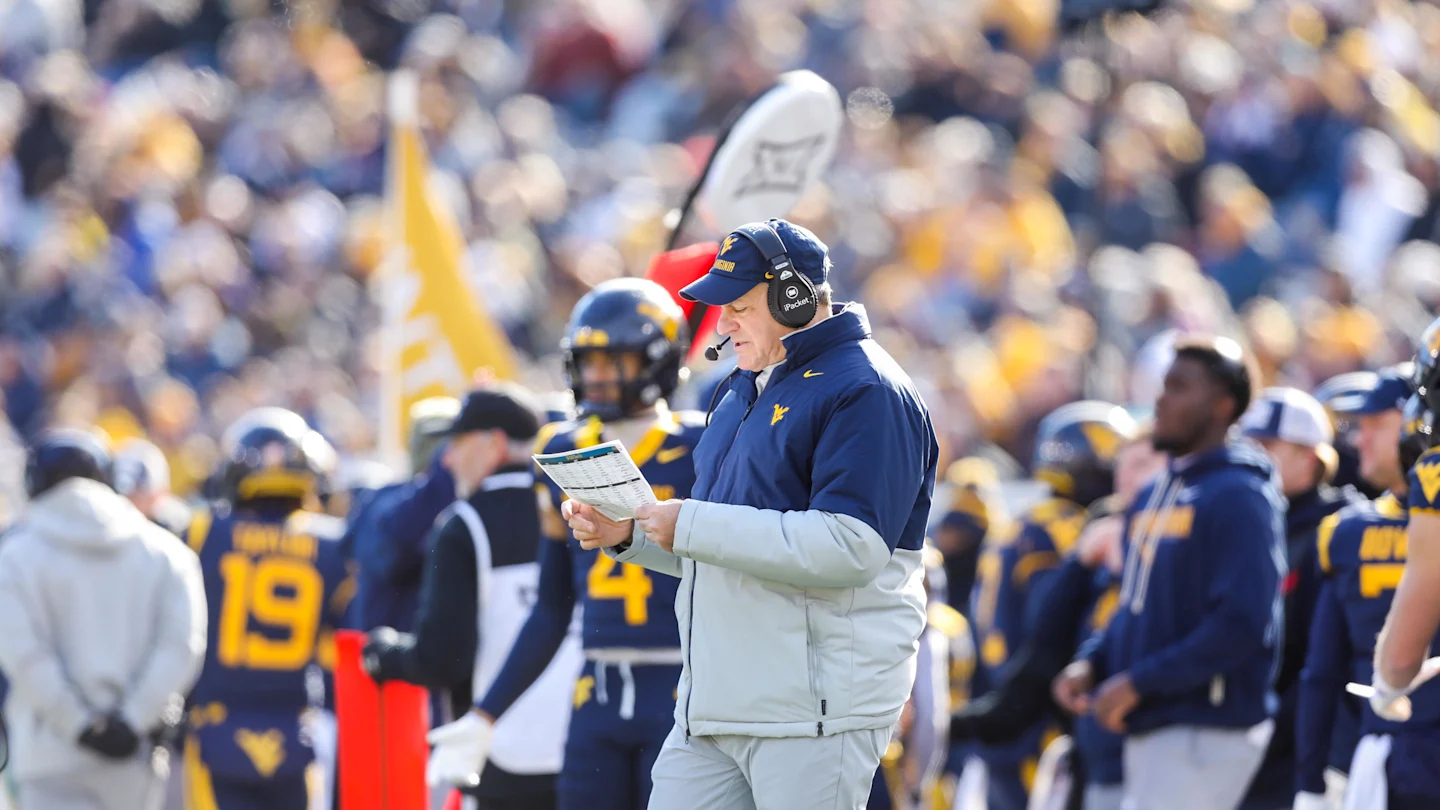
The NCAA transfer portal will open for all college football players looking for a new school to play for in the 2026 season.
The transfer portal can be an exciting prospect for successful programs looking to reload their talent pool ahead of the following season. For struggling programs, the idea of roster retention can feel like an uphill battle against potential suitors in the transfer portal.
One program that is fighting the aforementioned uphill battle with roster retention is West Virginia. A multitude of players on the 2025 roster for the Mountaineers have already decided to look for greener grass in the transfer portal.

Among the more notable departures for the Mountaineers in the 2026 offseason will be quarterback Khalil Wilkins and running backs Jahiem White and Diore Hubbard.
Wilkins was given snaps as a backup in games against Robert Morris, Kansas, Utah, BYU, UCF and Texas Tech. He tallied 185 passing yards, a touchdown pass and two interceptions while rushing for another 243 yards and two interceptions.
While his 2025 season was far less productive due to injury, White had been given a lot of run with the Mountaineers in his prior two seasons in the program. He accumulated 1,820 yards and 14 touchdowns on the ground while catching 27 passes for 262 yards and three touchdowns in three seasons.
Hubbard finished 2025 as West Virginia’s most productive running back. He ran for 335 yards and four touchdowns and caught 16 passes for 156 yards.

So far, 247Sports has reported 19 other players will transfer out of West Virginia.
Offensively, running backs Tyler Jacklich, Kannon Katzer and Clay Ash, wide receivers Tyshawn Dues and Oran Singleton Jr, and offensive linemen Robby Martin, Cooper Young, Jude Edwards and Ethan Chill are heading for the portal.
On defense, linemen Adam Tomczyk and Jackson Biser, linebacker Mike Hastie, and defensive backs Zae Jennings, William Davis, Dawayne Galloway Jr., Devonte Golden-Nelson, Kaleb Gray, and Matthias Squire are all exiting. Punter Aidan Stire is also entering the transfer portal.
The Mountaineers rehired Rich Rodriguez to be their head coach after parting with Neal Brown at the conclusion of the 2024 season. Rodriguez coached at West Virginia from 2001-2007 and had held head coaching jobs at Michigan, Arizona and Jacksonville State after leaving.
West Virginia finished 14th in the Big 12 standings with its 4-8 overall record. The Mountaineers’ 2025 wins were against Robert Morris (45-3), Pittsburgh (31-24), Houston (45-35) and Colorado (29-22).
NIL
Miami NIL financial commitment in 2026
The landscape is evolving fast, and more teams saw the success of Miami, Texas Tech, Oregon, and Indiana in the portal, and will become more
competitive. Texas Tech is doubling down, and we can expect more competition even inside the ACC with Clemson and VaTech. Point here, is what was good and competitive in 2025, wont be enough in 2026. Solid HS recruiting helps, but just look at the impact of our portal class this season. January 2nd through the 10th is going to be crucial, and hope we have our ducks in a row right now. The financial commitment needs to grow to be on par with Texas Tech and Oregon.
NIL
College football: Four key Gophers coming back in unique NIL campaign

PHOENIX — Four important Gopher football players were part of a unique media campaign on Tuesday.
Offensive linemen Greg Johnson and Nathan Roy, and defensive backs John Nestor and Kerry Brown allowed the Gophers’ NIL collective, Dinkytown Athletes, to share news they will play in the Rate Bowl against New Mexico on Friday, and will return to Minnesota for the 2026 season.
Advertisement
The social media posts were “presented by Cub Foods,” and those players will be recipients of the grocer’s NIL contribution next year. Dinkytown Athletes serves as a subcontractor.
Athletics Director Mark Coyle called Cub Foods a “foundational partner” of Gopher sports.
“That is how we take the next step, with that type of involvement with NIL side of it,” Coyle told the Pioneer Press. “We are so grateful for their support.”
A few more current Gopher players are expected to join the Cub Foods campaign after the bowl game. But if players on the current roster aren’t included in this specific rollout, that doesn’t necessarily mean they are leaving the U to go into the transfer portal.
Advertisement
For instance, quarterback Drake Lindsey said, independently, two weeks ago that he would return to Minnesota for his redshirt sophomore season in 2026. Other current players have shared they will be back with the Gophers next year.
Meanwhile, the futures of defensive end Anthony Smith, safety Koi Perich and running back Darius Taylor have yet to be shared. Smith and Taylor said Wednesday they have not yet made decisions on their plans for 2026; both are in line to play in the bowl game at Chase Field.
“I really haven’t thought about that stuff,” Taylor said. “I’m just worried about the game. I will figure all that out after the game.”
Smith said he hasn’t ruled out entering the transfer portal. “I don’t know,” he said.
Advertisement
Johnson, who started all 12 regular-season games at guard, will return for his senior season next fall. The Prior Lake native played nearly 700 snaps and was Minnesota’s highest-graded starting offensive lineman in 2025 (75.3 overall mark, per Pro Football Focus).
“Being from Minnesota, I personally didn’t have any thoughts of going elsewhere,” Johnson said. “I think Drake really set the tone for the team. This is Drake’s team. He’s our leader and it’s easy to come back and want to play for a guy like that.”
Roy stepped in as the U’s left tackle during his redshirt freshman year with aplomb, playing a team-high 702 snaps with a 69.0 grade from PFF. The Mukwanago, Wis., native will be back for his redshirt sophomore year.
Nestor transferred in from the Iowa Hawkeyes last year, and the Chicago native started 10 of 12 games as Minnesota’s most-reliable corner. He had a team-high five interceptions, adding 47 tackles in 538 total snaps. He will be a senior in 2026.
Advertisement
Brown continued as a linchpin in Minnesota’s defense for second straight season. The safety and nickel back from Naples, Fla., was fourth on team with 55 tackles and added two interceptions in 579 snaps. He will return for his redshirt junior year.
Related Articles
NIL
Three Mizzou staffers following Kirby Moore to Washington State

When Kirby Moore got the Washington State head coaching job, Eli Drinkwitz knew a few members of his staff would likely be headed to Pullman soon.
“Moving forward, could lose a couple more people off our staff from analyst roles, as coach Moore finalizes and puts his staff together,” Drinkwitz said on December 16. “It shouldn’t change the dynamic of what we do at all.”
Three of those moves were reported on Wednesday morning by Chris Hummer and Matt Zenitz of CBS and 247Sports.
START YOUR ANNUAL VIP SUBSCRIPTION FOR 50% OFF YOUR FIRST YEAR
The first is Tiger tight ends coach Derham Cato. Cato has coached Mizzou’s tight ends for the last three seasons. He spent six years at Washington, including an overlap with Moore when Moore was a graduate assistant for the Huskies. PowerMizzou.com had alerted subscribers to this move being likely a week ago.
The second coach is assistant offensive line coach Jack Abercrombie. Hummer and Zenitz report that Abercrombie will be the full-time offensive line coach for Moore with Washington State. Prior to his time at Mizzou, Abercrombie was on staff at VMI.
The final Mizzou to Washington State move is a front office move. Brad Larrondo, who has served as the CEO of Every True Tiger Brands, which is Missouri’s third-part partner for name, image and likeness deals. In his role, Larrondo helps Mizzou athletes line up NIL deals and also negotiates NIL and revenue sharing contracts for Mizzou football and men’s basketball players. Larrondo came to Missouri as Drinkwitz’s Director of Football External Relations and Recruiting in March of 2023. Prior to that, he had been the Chief of Staff at Auburn.
Larrondo had spent the previous 28 years in the athletic administration at Boise State, which is just 300 miles from Pullman. He still has family in Boise and sources told PowerMizzou.com the move to Washington State is heavily based in family reasons.
Larrondo’s position is technically not a University or a football program hire. However, the position works very closely with both and whoever replaces him will do so with influence and blessing from both of those entities. Missouri plays Virginia in the Taxslayer Gator Bowl on Saturday night. Any personnel moves or replacements will almost certainly not come until after that game.
NIL
Missouri Damon Wilson files countersuit against Georgia in NIL case
Updated Dec. 24, 2025, 11:28 a.m. ET
Missouri football defensive end Damon Wilson has sued Georgia athletics, a move that counters a Georgia lawsuit filed against Wilson earlier this year and intensifies what was already a novel and likely first-of-its-kind case over an NIL contract dispute.
A 42-page document reviewed by the Columbia Daily Tribune was filed in Boone County on Tuesday.
Georgia is attempting to take Wilson into arbitration and is seeking $390,000 in liquidated damages from the star edge rusher, who transferred to the Tigers in January 2025, over what the university views as an unfulfilled contract with the Bulldogs’ former NIL collective, Classic City Collective.
In response, escalating what was already an attempt at a potentially precedent-setting case, Wilson’s attorneys allege his former team “falsely (told) at least three programs” unnamed Power Four teams that “Wilson would be subject to a $1.2 million buyout.”
The suit also alleges Georgia violated a confidentiality provision in Wilson’s term sheet, which was provided as part of the UGA lawsuit in a public court filing.
Wilson’s suit argues he also was urged to sign the term sheet without legal counsel, and that Georgia did not “immediately submit his name to the transfer portal” but instead “launched an all-out offensive to convince Wilson to remain at Georgia.”
Also of note: The suit argues the term sheet Wilson signed states it would “be used to create a legally binding document” and therefore is not enforceable in its current format, and that he was urged to “seek legal counsel” before the agreement was finalized.
If the document is determined not to be finalized, it is quite likely Wilson will not owe Georgia the $390,000 it seeks.
Per The Athletic, Wilson is seeking “a ‘fair and reasonable amount of damages’ for the ‘financial and reputational harm he has suffered’ along with legal fees” from Georgia.
“Georgia appears intent on making an example of someone, they just picked the wrong person,” Jeff Jensen, one of Wilson’s attorneys, said to the Columbia Daily Tribune. “Damon never had a contract with them. I don’t see how Georgia thinks intimidation and litigation will help their recruitment efforts — maybe players could bring lawyers with them to practice.”
Multiple Missouri representatives, including a team spokesperson and athletic director Laird Veatch, have declined to comment on Wilson’s lawsuit. The Georgia lawsuit is not against the University of Missouri; it is only against Wilson.
“This matter involves pending litigation, and we have no comment at this time,” Georgia spokesperson Steven Drummond told USA TODAY on Tuesday. “We refer you to our previous statement.”
The previous Georgia statement in question: “When the University of Georgia Athletic Association enters binding agreements with student-athletes, we honor our commitments and expect student-athletes to do the same.”
Georgia has argued Wilson signed a contract — a common practice in the NIL era — with what was then Georgia’s main, but now-shuttered, NIL and marketing arm, Classic City Collective, in December 2024.
That collective has since shut down, as Georgia has partnered with Learfield to negotiate and facilitate NIL deals in the revenue-sharing era.
The report, citing documents attached to Georgia’s legal filings, shows that Wilson signed a 14-month term sheet worth $500,000 with the Bulldogs. He was set to earn monthly payments of $30,000 through the end of the contract, as well as two $40,000 bonus payments.
Before announcing his intention to transfer in January, he reportedly was paid $30,000.
The contract states if Wilson left the team or transferred, as he ultimately did to Missouri, he would owe the collective that issued the payments a lump sum equal to the amount remaining on his deal.
The bonus payments seemingly were not included, which brings that total to the $390,000 that Georgia is now seeking in court.
Wilson was paid only a fraction of that sum, but the university argues he owes the full amount in damages. It’s unclear why Georgia is claiming it is owed the full amount in liquidated damages.
According to documents viewed by the Tribune through the Georgia courts records system, Georgia filed an “application to compel arbitration” on Oct. 17 in the Clarke County Superior Court, which includes Athens and the University of Georgia. Wilson was served with a summons to appear in court, according to documents, on Nov. 19, three days before the Tigers faced Oklahoma.
Wilson spent his freshman and sophomore seasons at Georgia. He transferred to Missouri ahead of spring camp in 2025 and has emerged as one of the top pass rushers in the SEC.
Per Pro Football Focus, Wilson generated 49 pressures on opposing quarterbacks this season, which was the second-most in the SEC behind only Colin Simmons at Texas. He’s listed at 6-4, 250 pounds and could declare for the 2026 NFL Draft, where he would likely be a Day 1 or 2 pick.
This case marks the first time a school has taken a player to court over an NIL buyout. It also looks likely to be the first time a player has filed suit against a school over NIL.
Missouri has multiple players on two-year contracts. Part of that is in the hope they do not move on after one season.
If Georgia’s arbitration case against Wilson is successful, that would be a groundbreaking ruling in college athletics that could give more weight to liquidated damages clauses in athlete contracts.
NIL
College Football Playoff team loses key starter to NCAA transfer portal
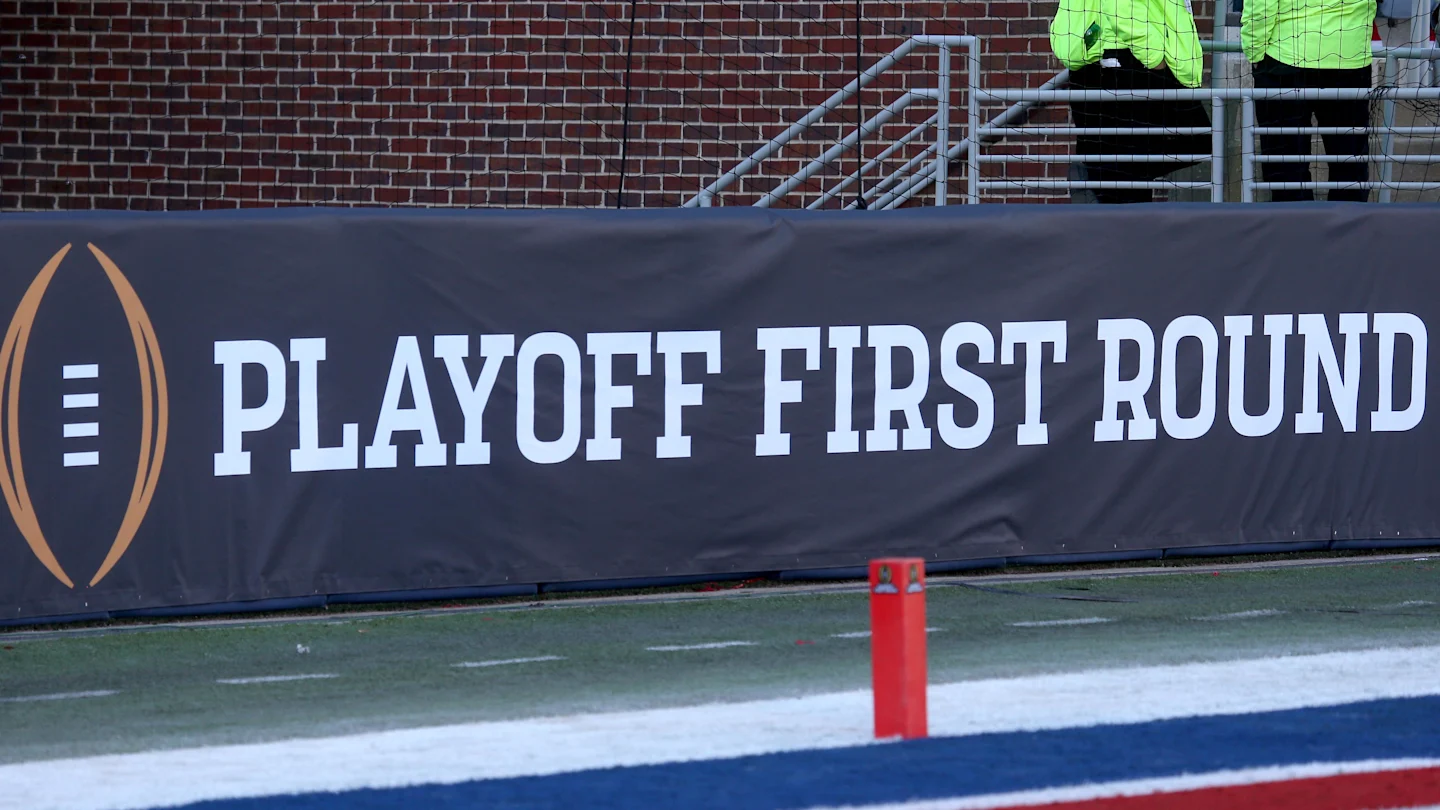
The first round of the College Football Playoff is in the books. Eight teams remain in the hunt to win it all, with Miami and Ohio State kicking off the quarterfinals slate in the Goodyear Cotton Bowl on December 31.
There were quite a few memorable games in the opening round of the playoffs, including Miami’s hard-fought victory against Texas A&M and Alabama’s wild comeback to secure a road win over Oklahoma.
The lone blowout came from Ole Miss over Tulane, winning 41-10 over the Green Wave. Both programs are in transition after their head coaches were hired away by other schools. The Green Wave, in particular, has seen some attrition since concluding its season last week.
Another Tulane Starter Enters Transfer Portal
On Wednesday afternoon, redshirt sophomore cornerback Jahiem Johnson announced his plans to move on after three seasons at Tulane, per On3’s Haye Fawcett.
Johnson developed into a productive defender for the Green Wave in 2025, starting in all 14 games. He totaled 42 tackles, 1 tackle for loss, 1 forced fumble, 9 pass deflections, and 4 interceptions. Johnson’s 9 pass deflections led the American Conference.
He deflected a pass in 6 different games and recorded a pick in 4 separate outings. In Tulane’s conference championship victory against North Texas, Johnson tied his season-high with 5 tackles, 1 pass deflection, and 1 interception.
The Louisiana native played the most snaps (834 snaps) of any player on Tulane’s defense. He was the third-highest-graded player on the unit (77.1 overall grade), per Pro Football Focus.
Johnson signed with Tulane as a three-star prospect in the 2023 class, joining the program under former head coach Willie Fritz. He redshirted as a true freshman, sticking with the Green Wave when Jon Sumrall took over.
In 2024, appeared in 14 games as a reserve, totaling 4 tackles and 2 pass deflections. Johnson’s rise this past season resulted in him earning honorable mention conference honors.
Johnson is the fifth starter to transfer from Tulane, joining defensive end Santana Hopper, linebacker Harvey Dyson, defensive tackle Tre’Von McAlpine, and running back Javin Gordon in the portal.
Sumrall was hired away from the Green Wave to be the next head coach of the Florida Gators. Considering Johnson’s breakout campaign, he may want to continue playing for a familiar face if that option is on the table.
Read more on College Football HQ
• Coveted dual-threat quarterback entering college football transfer portal
• Former 5-star QB becomes latest college football star to sign new deal for 2026 season
• Johnny Manziel issues apology to ESPN after Texas A&M-Miami game
• College football team set to be without nearly 20 players for upcoming bowl game
-

 Motorsports2 weeks ago
Motorsports2 weeks agoSoundGear Named Entitlement Sponsor of Spears CARS Tour Southwest Opener
-

 Motorsports2 weeks ago
Motorsports2 weeks agoDonny Schatz finds new home for 2026, inks full-time deal with CJB Motorsports – InForum
-

 Rec Sports3 weeks ago
Rec Sports3 weeks agoHow Donald Trump became FIFA’s ‘soccer president’ long before World Cup draw
-
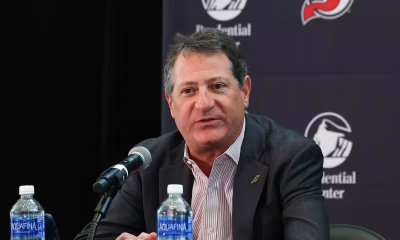
 Rec Sports2 weeks ago
Rec Sports2 weeks agoDavid Blitzer, Harris Blitzer Sports & Entertainment
-

 Motorsports3 weeks ago
Motorsports3 weeks agoJR Motorsports Confirms Death Of NASCAR Veteran Michael Annett At Age 39
-
Sports3 weeks ago
Elliot and Thuotte Highlight Men’s Indoor Track and Field Season Opener
-
Sports3 weeks ago
West Fargo volleyball coach Kelsey Titus resigns after four seasons – InForum
-
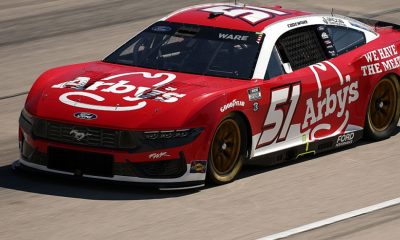
 Motorsports2 weeks ago
Motorsports2 weeks agoRick Ware Racing switching to Chevrolet for 2026
-

 NIL2 weeks ago
NIL2 weeks agoDeSantis Talks College Football, Calls for Reforms to NIL and Transfer Portal · The Floridian
-
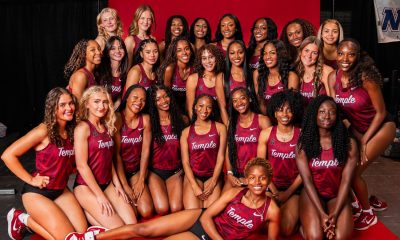
 Sports3 weeks ago
Sports3 weeks agoTemple Begins Indoor Track & Field Season at UPenn This Weekend
































